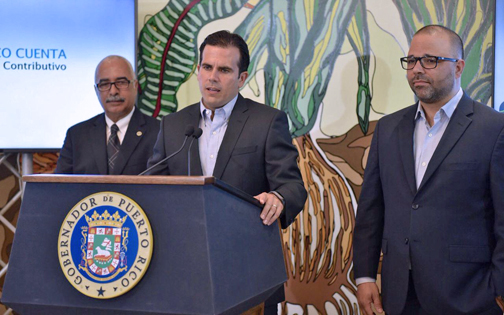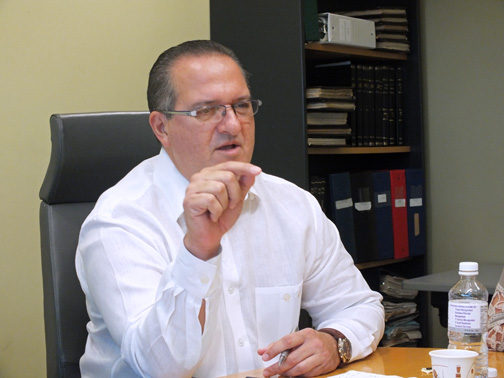Op-Ed: A note on Ways and Means tax reform legislation


Author Jeffrey L. Farrow is a Consultant on Government Affairs in Washington, DC and Chairman of The Oliver Group Inc. From 1994 to 2001, Farrow was the White House’s principal adviser on and coordinator of policy concerning Puerto Rico. (Credit: © Mauricio Pascual)
Some companies from the U.S. mainland operate in Puerto Rico directly vs. through Controlled Foreign Corporations. They pay federal income tax on their territorial income at the normal 35 percent rate.
For the past several years, they have been able to deduct 9 percent of their profits from their taxable income under the Domestic Production Tax Deduction, effectively reducing their tax rate to about 32 percent. The deduction is not available for income from production outside the U.S.
A bill submitted by U.S. House of Representatives Ways and Means Committee Chairman Dave Camp’s would phase out the deduction — it would already lower the normal tax rate from 35 percent to 25 percent.
The deduction, created in 2004, is ongoing law for income from the states. Although the Senate included income from Puerto Rico in its bill, Puerto Rico income was excluded after then-Resident Commissioner Aníbal Acevedo-Vilá opposed inclusion. He was lobbying for the proposal of former Gov. Sila Calderón to effectively recreate Internal Revenue Code Section 936 into Section 956 — a proposal that was rejected.
In fact, the Senate Finance Committee included income from Puerto Rico in its domestic production deduction bill precisely because it was opposed to the 956 proposal. During his term, Resident Commissioner Luis Fortuño got income from Puerto Rico qualified for the deduction, but on a temporary basis since the tax committees were already planning to develop the tax reform legislation that we are now seeing.
The current temporary provision expired last Dec. 31st, along with about five dozen other temporary provisions of tax law. President Barack Obama has not proposed extension of most, also because of the interest in a reform of the federal tax system.
New Senate Finance Committee Chairman Wyden (D-OR), however, has said ‘tax extenders’ will be an early priority for him. Chairman Camp has resisted calls to pass tax extenders, reportedly thinking that it will take away some determination and some revenue needed for comprehensive tax reform. Senate Finance Ranking Minority Member Orrin Hatch (R-UT) and House Ways and Means Republicans have said that not all of the extenders ought to be passed; each should be judged on its individual merits.
I have not heard controversy, however, about extending the deduction for income from Puerto Rico as long as the deduction (Sec. 199) is available for income from the states.
The Congress’ Joint Committee on Taxation estimated in August 2012 that including income from Puerto Rico would cost the federal treasury $236 million in 2013 and $122 million in 2014. (Even though the deduction expired in 2013, there are costs this year because of when companies pay their taxes.)
With every dollar of the cost of the deduction representing about $33 in income, the deduction represents a lot of economic activity in Puerto Rico.










